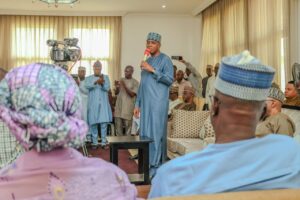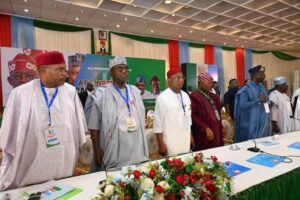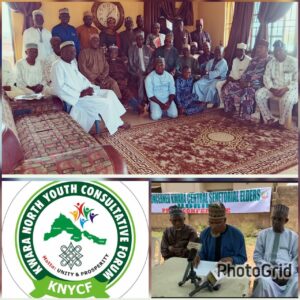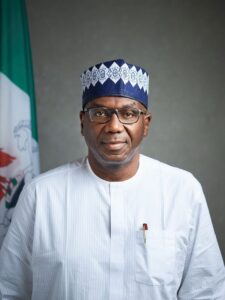
The Kwara State chapter of the People’s Democratic Party (PDP) is facing its most turbulent period yet, as a wave of defections continues to rock the party, with prominent members jumping ship to the ruling All Progressives Congress (APC) and the increasingly assertive African Democratic Congress (ADC).
Since the PDP’s crushing defeat in the 2019 gubernatorial election by the Otoge political movement, the party has battled to regain stability and relevance in the state’s political landscape. However, its fortunes have continued to decline, culminating in a growing number of defections that now threaten its very structure.
Among the high-profile defectors are former Kwara State Governor Abdulfatah Ahmed; ex-deputy governorship candidate Gbenga Makanjuola; Bolaji Abdullahi, a former minister and senatorial candidate; Hon. Wahab Issa, former member of the House of Representatives for Ilorin South/Ilorin East; Bibire Ajape, ex-chairman of Ilorin East Local Government; and Idris Musa Buko, former House of Representatives candidate for Baruten/Kaiama Federal Constituency. Their departures have left a gaping leadership vacuum and severely weakened the influence of PDP’s national leader and former Senate President, Dr. Abubakar Bukola Saraki.
In the past few weeks alone, the exodus has intensified, with more grassroots mobilizers and loyalists realigning their political interests with the APC and ADC, citing the PDP’s lack of direction and internal cohesion.
Alarmed by the development, Dr. Saraki flew into Ilorin on Tuesday to convene an emergency meeting aimed at arresting the situation. However, the gathering reportedly witnessed a significantly lower turnout than previous party meetings, further highlighting the party’s dwindling base and the erosion of Saraki’s once-unshakable hold on Kwara politics.

Though Saraki reiterated his loyalty to the PDP and distanced himself from the ADC — which ironically continues to gain strength by absorbing PDP defectors — political observers noted a visible sense of unease in his posture. Many interpreted his body language as that of a leader grappling with uncertainty and diminishing confidence in his party’s prospects ahead of the 2027 general elections.
Analysts argue that the unfolding scenario is symbolic of the decline of dynastic political structures that fail to evolve with the times. Saraki, once regarded as the undisputed political godfather of Kwara, now faces a daunting battle to remain relevant in a rapidly shifting political landscape.
The mass defections and the apparent disillusionment within the PDP rank and file signal not just a party in distress but a critical turning point in Kwara State’s political realignment — one that may ultimately redefine the state’s future leadership structure.




